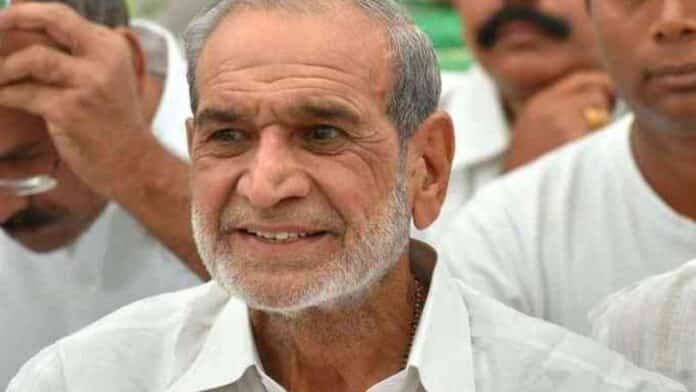In a significant ruling on Tuesday, a special court sentenced former Congress leader Sajjan Kumar to life imprisonment for his involvement in the murder of a father and son during the 1984 anti-Sikh riots in Delhi’s Saraswati Vihar. This decision follows the court’s February 12 conviction of Kumar, requiring a psychological evaluation in compliance with a Supreme Court directive applicable to cases with potential capital punishment outcomes.
The case, highlighting a dark chapter in India’s history, revolves around the brutal killings that erupted following the assassination of then Prime Minister Indira Gandhi by her Sikh bodyguards. The violence, marked by extensive looting, arson, and murders, predominantly targeted the Sikh community.
Delhi Sikh Gurudwara Management Committee (DSGMC) expressed dissatisfaction with the verdict, emphasizing their preference for the death penalty to ensure justice for the heinous crimes committed. “After 41 years, even if he got life imprisonment, justice has prevailed. I respect the verdict of the court,” stated Jagdip Singh Kahlon, DSGMC general secretary.
The complainant, who lost her husband and son in the riots, had advocated for the maximum penalty of death, underscoring the severity and premeditated nature of the attacks orchestrated by Kumar. “The accused, as the leader of the mob, incited others to carry out genocide, crimes against humanity, and cold-blooded murders. He deserves nothing less than the death penalty,” argued senior advocate HS Phoolka, representing the complainant.
Kumar’s legal battles are extensive, with previous convictions for similar crimes during the riots. He was already serving a life sentence for the murders of five individuals in a separate case from Delhi’s Raj Nagar area. These incidents form part of what has been described as a broader pattern of genocide against the Sikh community during the riots, which led to significant loss of life and property.
The ruling has reignited discussions on the adequacy of legal responses to communal violence and the long-term impact of delayed justice on the victims and their families. The Supreme Court’s involvement in ensuring rigorous adherence to legal standards in this high-profile case underscores the ongoing challenges in addressing historical injustices in India.




